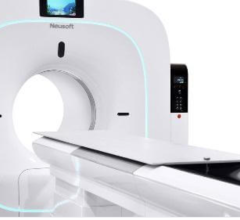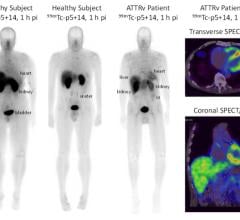July 8, 2014 — NorthStar Medical Radioisotopes LLC has signed a pledge with the Preparatory Commission for the Comprehensive Nuclear-Test-Ban Treaty Organization (CTBTO), designed to help the CTBTO detect nuclear testing.
In signing the Radioxenon Emissions Pledge, NorthStar stated that its production of the medical radioisotope molybdenum-99 (Mo-99) does not result in the emission of radioxenon, a radioactive noble gas. Based in Madison, Wis., NorthStar is one of only six producers of medical radioisotopes to have signed the pledge.
Radioxenon is one of the products measured by the CTBTO in its effort to detect nuclear testing. It also, however, may be emitted during the peaceful production of radioisotopes used in medical diagnostic imaging. Readings from both events look similar, making it more difficult for the CTBTO to identify potentially dangerous activities.
Mo-99 is the parent isotope of technetium-99m (Tc-99m), the most widely used radioisotope in medical diagnostic imaging. Currently, nearly all Mo-99 is generated using highly enriched uranium (HEU) and a fission-based process. NorthStar is pursuing two non-uranium- and non-fission-based, production processes that would help establish a reliable domestic source of Mo-99. Neither process results in the emission of radioxenon and both generate only a benign waste stream.
“The CTBTO’s work in minimizing radioxenon gas emissions is extremely important to the world community,” said NorthStar president and CEO George P. Messina. “We are pleased that our technology will help the world’s nuclear test-ban monitors focus on detecting nuclear explosions. Signing this CTBTO pledge is consistent with our effort to minimize our waste footprint by virtue of our unique, non-uranium, non-fission processes which produce no real waste by-products of consequence.”
“I welcome the pledge of NorthStar Medical Radioisotopes,” CTBTO executive secretary Lassina Zerbo said. “NorthStar is the sixth producer to cooperate with the CTBTO in our efforts to reduce the effects of radioactive releases on the detection of nuclear tests. The CTBTO will remain engaged with all medical isotope producers to mitigate xenon emissions for test-ban verification.”
For more information: www.northstarnm.com, www.ctbto.org


 July 30, 2024
July 30, 2024 








